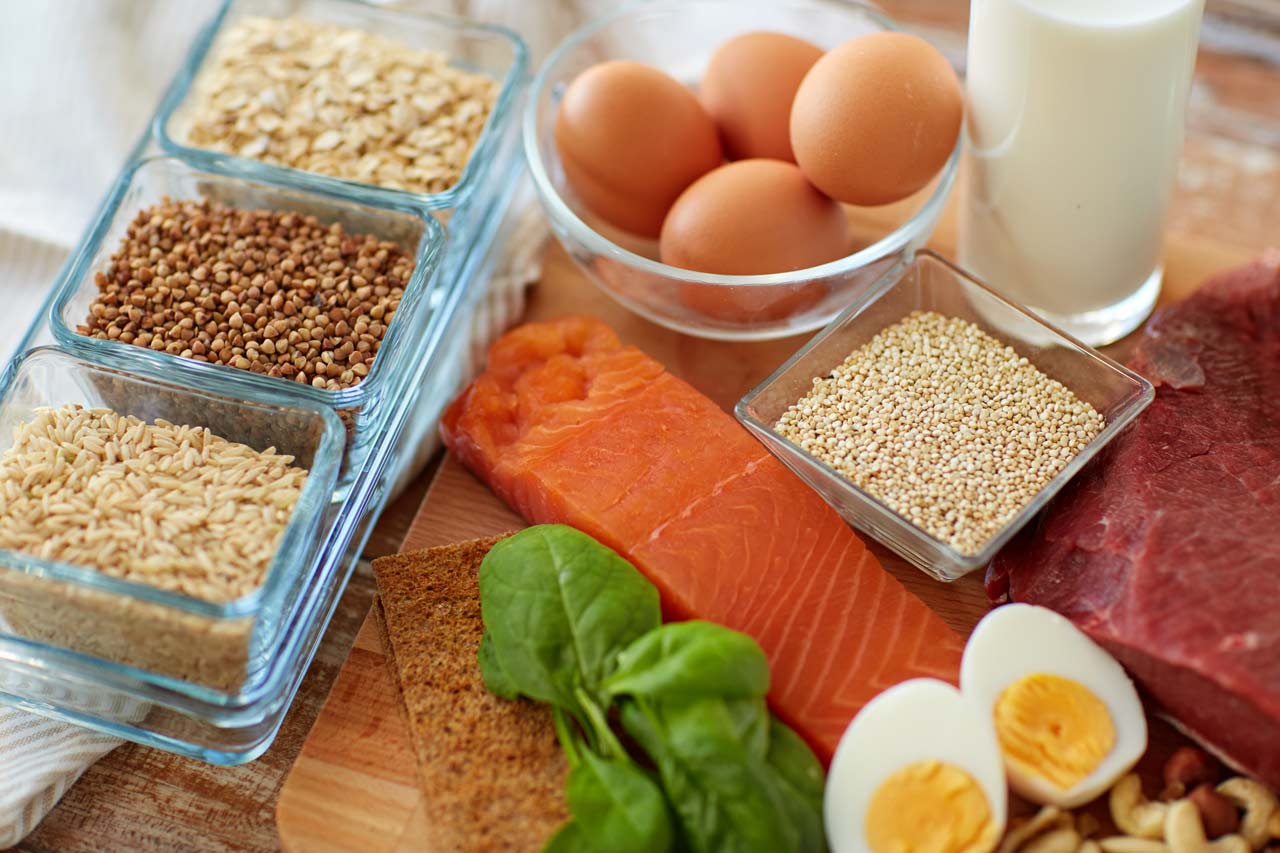Protein is a crucial component of a balanced diet, contributing to muscle development, immune function, and overall well-being. While the spotlight often falls on traditional protein sources like meat, dairy, and legumes, there's a hidden world of household products that can surprisingly boost your protein intake. Let's explore these everyday items that pack a protein punch, offering a convenient and diverse way to meet your nutritional needs.
**1. Greek Yogurt:
A staple in many households, Greek yogurt is a protein-rich
powerhouse. Its thick and creamy texture makes it a versatile ingredient in
both sweet and savory dishes. A single cup can provide upwards of 20 grams of
protein, making it an excellent addition to your daily diet.
**2. Eggs:
Eggs are not just for breakfast; they are a versatile
protein source available in every kitchen. Whether scrambled, boiled, or
incorporated into various recipes, eggs contain essential amino acids and
provide around 6 grams of protein per egg.
**3. Cottage Cheese:
Cottage cheese is a dairy delight that often hides in the
refrigerator. It's not only a great source of protein but also rich in calcium.
A single cup can contribute around 28 grams of protein, making it a satisfying
snack or addition to salads and desserts.
**4. Peanut Butter:
A favorite among many, peanut butter isn't just a delicious
spread; it's also a source of plant-based protein. Two tablespoons of peanut
butter can deliver about 8 grams of protein, making it a tasty addition to your
toast or smoothies.
**5. Quinoa:
Considered a whole grain, quinoa is a protein-packed
alternative to traditional grains like rice or pasta. A cup of cooked quinoa
provides approximately 8 grams of protein and is a versatile ingredient in
salads, bowls, or as a side dish.
**6. Chickpeas:
Canned or dried, chickpeas are a pantry essential that
offers a protein boost. Whether blended into hummus, tossed in salads, or
roasted as a snack, a cup of cooked chickpeas delivers around 15 grams of
protein.
**7. Milk:
A classic household product, milk is not only a rich source
of calcium but also a complete protein. Whether you prefer dairy or plant-based
options like almond or soy milk, a cup can contribute around 8 grams of protein
to your diet.
**8. Protein-Fortified Cereals:
Many breakfast cereals are now fortified with additional
protein. Check the labels when shopping, and you might find options that
provide an extra protein boost to kickstart your day.
**9. Tofu:
A versatile plant-based protein, tofu takes on the flavor of
whatever it's paired with. With approximately 20 grams of protein per cup, tofu
can be stir-fried, grilled, or blended into smoothies for a protein-packed
meal.
**10. Cheese:
Whether sliced, shredded, or melted, cheese is a familiar
protein source in many households. Different varieties offer varying protein
content, with options like mozzarella providing around 6 grams per ounce.
**11. Protein-Packed Pasta:
Explore the pasta aisle, and you'll find varieties made from
chickpeas, lentils, or black beans. These alternative pastas can provide double
or triple the protein content compared to traditional wheat pasta.
**12. Nuts and Seeds:
Almonds, peanuts, chia seeds, and flaxseeds are common
household items rich in protein. A handful of nuts or a sprinkle of seeds can
be a convenient and nutritious way to increase your protein intake.
**13. Muesli or Granola:
Some muesli or granola blends are crafted with additional
protein sources like nuts, seeds, and dried fruits. Check the labels for
options that offer a protein boost to your morning routine.
**14. Canned Fish:
Tuna and salmon, available in most households, are excellent
sources of protein. Canned options make them convenient additions to salads,
sandwiches, or pasta dishes.
**15. Yeast Extract (Marmite or Vegemite):
For those who enjoy a savory kick, yeast extracts like
Marmite or Vegemite are not only flavorful but also surprisingly rich in
protein. A small serving can add a unique taste and boost protein intake.
Conclusion:
Discovering protein sources in everyday household products
adds variety to your diet and ensures that meeting your protein requirements is
both convenient and enjoyable. Whether you're reaching for a spoonful of Greek
yogurt, adding eggs to your recipes, or incorporating protein-rich
alternatives, these household items are more than meets the eye—they're
nutritional powerhouses.


No comments:
Post a Comment